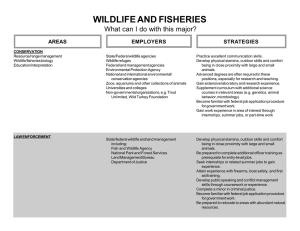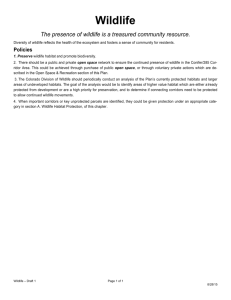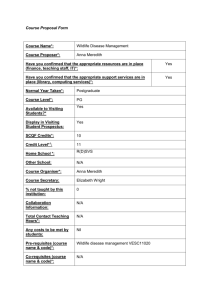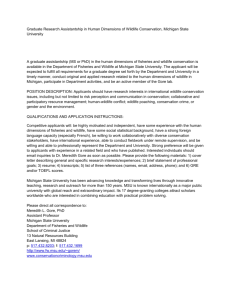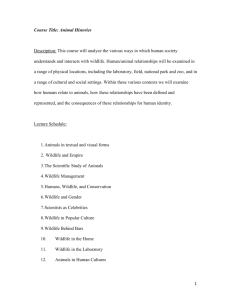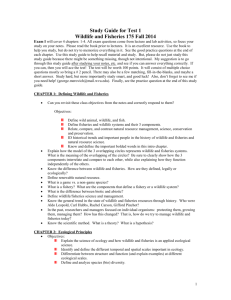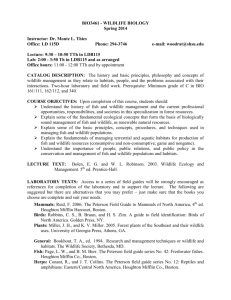Wildlife Fisheries and Ecology syllabus
advertisement
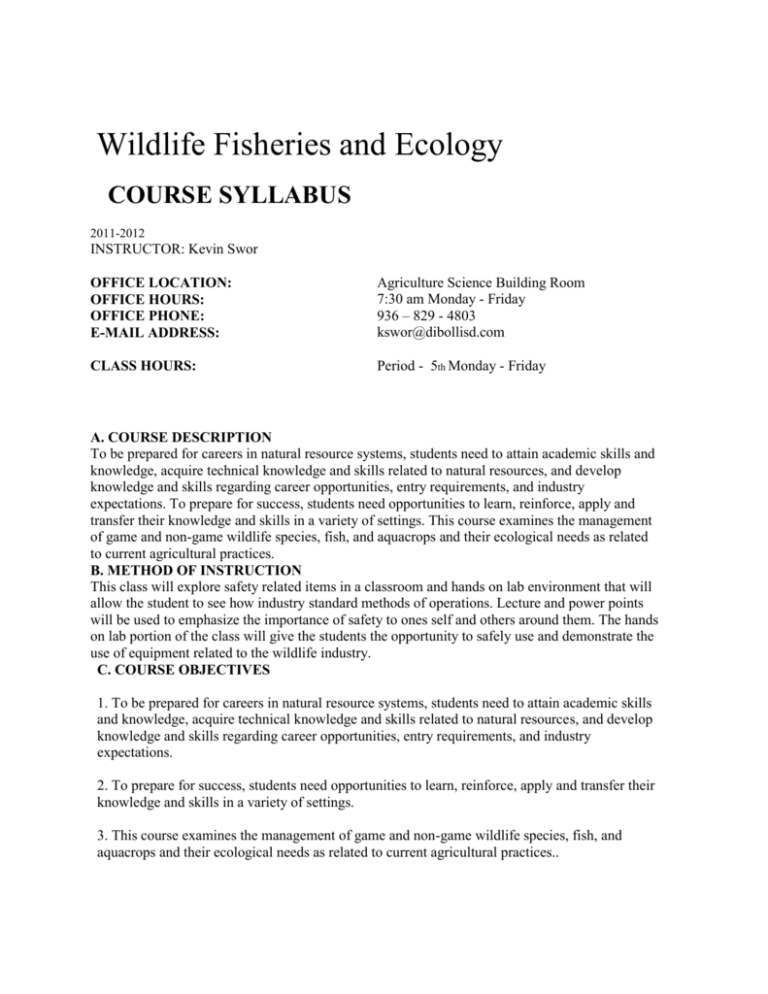
Wildlife Fisheries and Ecology COURSE SYLLABUS 2011-2012 INSTRUCTOR: Kevin Swor OFFICE LOCATION: OFFICE HOURS: OFFICE PHONE: E-MAIL ADDRESS: Agriculture Science Building Room 7:30 am Monday - Friday 936 – 829 - 4803 kswor@dibollisd.com CLASS HOURS: Period - 5th Monday - Friday A. COURSE DESCRIPTION To be prepared for careers in natural resource systems, students need to attain academic skills and knowledge, acquire technical knowledge and skills related to natural resources, and develop knowledge and skills regarding career opportunities, entry requirements, and industry expectations. To prepare for success, students need opportunities to learn, reinforce, apply and transfer their knowledge and skills in a variety of settings. This course examines the management of game and non-game wildlife species, fish, and aquacrops and their ecological needs as related to current agricultural practices. B. METHOD OF INSTRUCTION This class will explore safety related items in a classroom and hands on lab environment that will allow the student to see how industry standard methods of operations. Lecture and power points will be used to emphasize the importance of safety to ones self and others around them. The hands on lab portion of the class will give the students the opportunity to safely use and demonstrate the use of equipment related to the wildlife industry. C. COURSE OBJECTIVES 1. To be prepared for careers in natural resource systems, students need to attain academic skills and knowledge, acquire technical knowledge and skills related to natural resources, and develop knowledge and skills regarding career opportunities, entry requirements, and industry expectations. 2. To prepare for success, students need opportunities to learn, reinforce, apply and transfer their knowledge and skills in a variety of settings. 3. This course examines the management of game and non-game wildlife species, fish, and aquacrops and their ecological needs as related to current agricultural practices.. D. COURSE TOPICS/UNITS 1. Introduction and Safety 2. The Importance Wildlife Management 3. History of Wildlife, Fisheries and Ecological Management 4. Policies, Laws, and Administration of Wildlife and Fisheries Management 5. Basic Ecological Concepts 6. Wildlife Species Identification and Management 7. Fish Identification and Fisheries Management 8. Cartographic Skill and Natural Resource Activities 9. Aquaculture as an Industry 10. Careers in Equine Science 11. SAE in Wildlife E. TEXTBOOK(S) AND REQUIRED TOOLS OR SUPPLIES Hunter Education, Natural Resources, power points, computer record books F. GRADING PLAN 1. This class will be graded according to Diboll ISD Grading policies. It is based on a 100 % scale. 2. Six Weeks Grades will based on the following criteria: a. Daily Grades = 33% – Homework, daily participation, quizzes, class assignments, shop projects, record book assignments, b. Test Grades =67% – Test, Research Projects, Major Projects, Long Term Assignments 3. Student progress will be notes as a daily grade on all assignments but student is still responsible for completion of final project. 4. Students that are absent in the last two weeks of a grading period are still required to complete assignments but will receive an I or incomplete until the work is turned in. They will have seven calendar days to complete and turn in the assignments. 5. Parents may access the students grades using the Parent connect.




